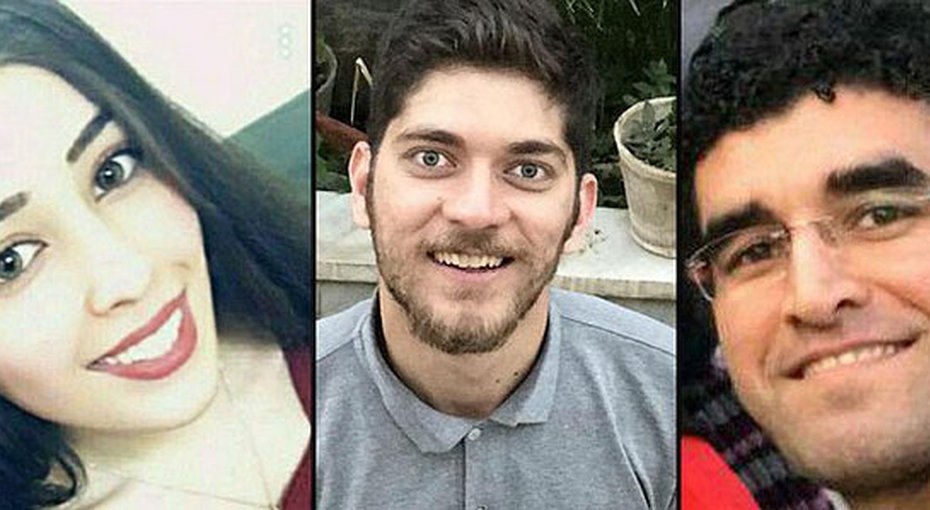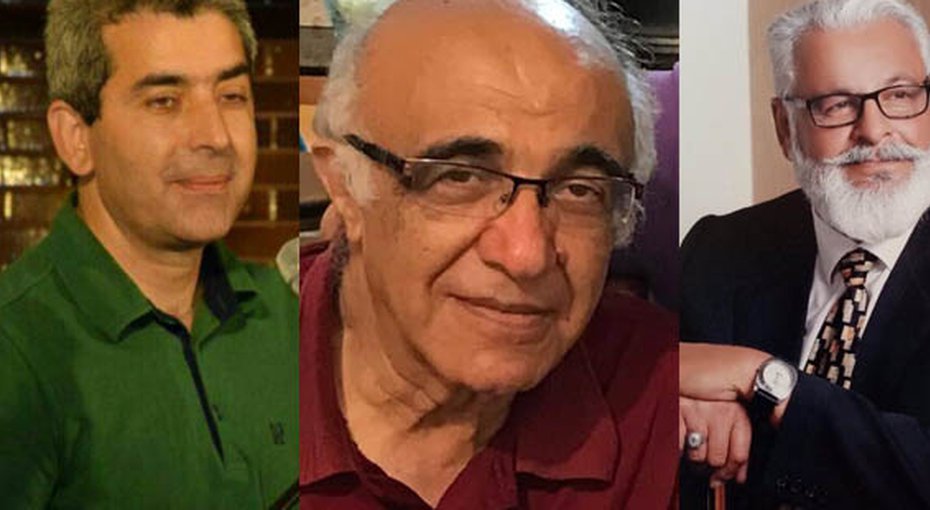Source: iranwire.com

Despite using a range of tactics, the Islamic Republic and its judiciary, as well as authorities before it, have not been able to destroy Iran’s Baha’i community. And now, writes Nasser Sedghi, public opinion is turning against decades of propaganda and misinformation.
Irrespective of the political and governing establishments in different countries around the world, the judiciary system is where people hope to find justice and fairness, and seek shelter against injustice. Unfortunately for Baha’is in Iran, that is far from the reality. To be persecuted and discriminated against by the government and clerics is hard enough, but to be treated unjustly by the judiciary system that should supposedly be an independent body for reinforcing the rule of law is even more heartbreaking and disappointing.
This is how the justice system works for Baha’is: In a systematic and orchestrated pattern, Ministry of Intelligence agents target individual Baha’is or a group of them – say a business group, educators or young students – and obtain a warrant under false accusations. Commonly, Baha’is are accused of endangering national security, spying for foreign countries, acting against the government or against Islam, and so on. Authorities will then make a sweeping arrest, along with confiscating computers, books and other personal items such as photo albums – in most cases to identify other people for further arrests. Initially, the accused individuals are kept in detention centers, at least for a few days, without any proper legal procedures being followed, and family members are not informed as to their whereabouts.
Such an arrest will have already created turmoil for family members, who are unaware of the whereabouts of their loved ones or the reason for their arrest. The system is designed to create frustration and a worrying environment for Baha’is. The next stage is the questioning, interrogation and filtering of the arrested people — whereby authorities randomly decide to keep some people incarcerated and release others after payment of a heavy bail, another burden on a family’s financial situation.
Trials Behind Closed Doors, Solitary Confinement, No Legal Counsel Allowed
When it comes to dealing with Baha’is in the legal system, authorities violate many legal procedures. Iranian law requires that detainees be quickly and formally charged with a crime. For Baha’is there is evidence that it can take weeks or months for this procedure to be followed. In the case of the seven Baha’i leaders who served 10-year prison sentences, it took nine months before there was any word about the charges against them. Denial of legal counsel is another violation of legal procedure. Under the Iranian legal system, the accused have the right for a lawyer to be present during the investigation. This right is denied to Baha’is. The legal statutes governing the operation of Iranian prisons restrict the holding of inmates in solitary confinement to not more than 20 days after their arrest. In the case of the seven Baha’i leaders, one was held for 175 days in solitary confinement, and the other six for 105 days.
The trials of Baha’is take place behind closed doors in the revolutionary courts. Many of the legal teams who have taken it upon themselves to defend Baha’is in the Iranian court system in the past have been accused of orchestrating activities against national security, and had to flee the country or face prison sentences themselves. Therefore, it is extremely difficult for Baha’is to find a legal team to defend their legal rights. A typical closed-door trial and court procedures for accused Baha’is involves the presence of a judge, a court clerk, a representative for the public prosecutor, the accused person and – if it is permitted – a lawyer. The whole show is influenced and controlled by intelligence agents. The impartiality of the judge is questionable, as he will interfere with the public prosecutor’s role, and will threaten the defense lawyer and the accused. The charges are fabricated, so the Baha’is will deny all the accusations and try to provide a reasonable response in defending themselves. If the lawyer, who is seated next to the accused, tries to highlight actual legalities according to Iranian law in defending the case, he or she will face harsh and threatening words from the judge. The bravery of the accused Baha’i in defending themselves and rejecting the false charges will frustrate the judge: finally – in a disrespectful manner – the judge will question the accused. Are you a Baha’i? If the answer is yes, the judge, with anger and hatred, will say: “That makes you guilty of all the charges!” In most of the cases prison terms are pre-determined and dictated by intelligence agents, and they are usually between one and 10 years. The whole trial procedure normally takes between 10 and 20 minutes.

Changing Tactics
Arrest, detention and imprisonment of Baha’is in Iran are part of an overall state-sponsored persecution in which the government and clerics desire to maintain an atmosphere of fear and uncertainty among the Baha’is. They keep changing their tactics and accusations when they fail to see negative impacts on the strength of the Baha’is of Iran. On October 13, 2013, following raids on 14 Baha’i homes in the city of Abadan, during the questioning of the detainees, the Baha’is were told that local residents “don’t like you” and that “when you are on the streets, they might attack you and your children with knives.” In reality this was another tactic, and the fact is that Baha’is have very good relations with their neighbors.
There is convincing evidence that for the last 40 years of the Islamic government in Iran there have been a number of Baha’is locked up in prison at any given time. The number of Baha’is in prison varies, but the authorities are determined to keep the pressure on the community, and so they continually come up with new tactics and strategies. The evidence is also clear that Baha’is have not committed any actual crimes, such as fraud, theft, murder, or other crimes. There are numerous stories inmates tell after their release from prison about how Baha’i prisoners were able to gain the trust and friendship of other prisoners, and how helpful they were in assisting and comforting their fellow inmates.
Stories of friendly meetings between a Baha’i prisoner, Mrs. Fariba Kamalabadi, and Mrs. Faezeh Hashemi, the daughter of former Iranian president, Akbar Hashemi Rafsanjani, generated significant media coverage in May 2016.
The Iranian Islamic regime and the ruling clerics continue to identify and jail Baha’is for various contrived reasons and baseless accusations, to arrest individual Baha’is and demand heavy bail, to ban young Baha’is from entering university and higher education, to impose economic repression on Baha’i business owners and to cancel their business licenses, to spread, through state controlled media, false and vicious propaganda and defamatory films, to paint Baha’is in the public eye as “other,” to issue fatwas demanding that the public cut off any ties with the Baha’is, to project Baha’is as a foreign element, anti-Islamic and morally corrupt, to confiscate Baha’i properties without any legitimate legal grounds, to dismiss Baha’is from government positions, universities and other public sectors, to destroy Baha’i cemeteries and make it impossible for Baha’is to bury their loved ones, and to deny Baha’is the chance to defend themselves via public media or otherwise. However, despite all this persecution, Baha’is have no animosity or hatred toward their oppressors.
Baha’is have demonstrated an exemplary constructive resilience in Iran under all kinds of cruelty and persecution, which they have endured for the last 175 years. It is quite obvious that Baha’is in Iran do not voluntarily seek persecution in order to gain sympathy, though the Iranian government and clerics viciously and continually air this nonsensical accusation against them. The Iranian government and clerics – with all the power and glory of the state sponsored propaganda machine – are nevertheless failing to convince the wider Iranian society or the international community to agree with their discriminatory and barbaric actions against the Baha’is.
A message addressed to the Baha’is of Iran on the anniversary of the imprisonment of the seven Baha’i leaders in 2017, says it well: “The Iranian Officials lacking any convincing explanation for their irrational conduct and unconcerned at the damage done by their narrow policies to the name and credibility of the country, find themselves unable even to give a plausible answer to why they are so apprehensive about the existence of a dynamic Baha’i Community in that land.”
Leave a Reply